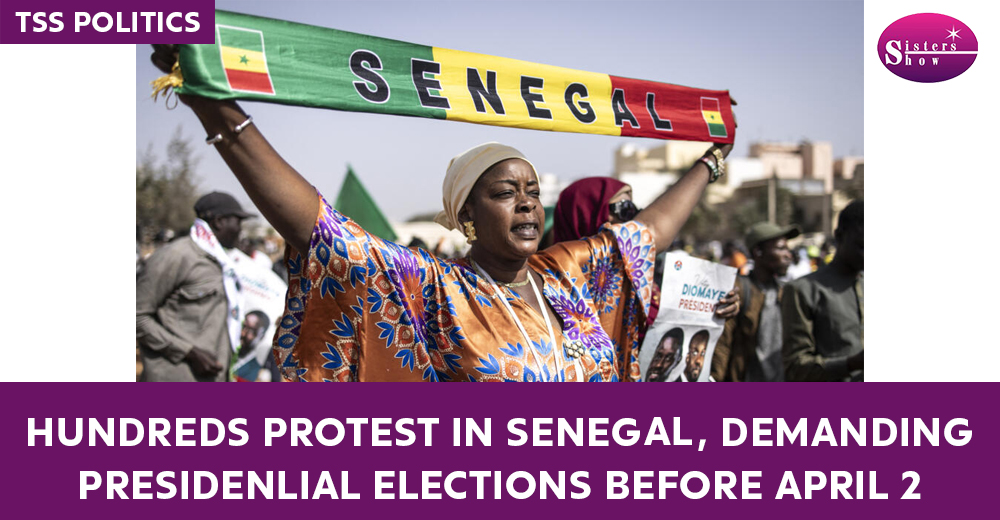
In the heart of Dakar, Senegal’s vibrant capital, the echoes of democracy resound through the sandy lots and bustling streets. Hundreds of voices, united under the banner of the “Resistance Front,” reverberate with a singular demand: the timely organization of presidential elections before April 2nd, a pivotal date marking the end of Macky Sall’s tenure.
Senegal, known for its rich tapestry of culture and history, finds itself at a critical juncture in its democratic journey. The postponement of the presidential elections, originally slated for February 25th, ignited a firestorm of dissent. The decision, labeled a “constitutional coup d’etat” by the opposition, precipitated widespread protests and tragic loss of life. Yet, amidst the chaos, a resilient spirit emerges a collective resolve to uphold the principles of democracy and justice.
At the forefront of this struggle stands Ousmane Sonko, a figure emblematic of opposition defiance. Despite facing incarceration on charges of “incitement to insurrection,” Sonko remains a beacon of hope for many Senegalese, his portrait held aloft amidst a sea of fluttering flags. His endorsement of Bassirou Diomaye Faye, another incarcerated candidate, underscores the resilience of democratic ideals even in the face of adversity.
The rallying cry of “Macky Sall dictator” reverberates through the crowd, a potent reminder of the aspirations for change that pulse within Senegal’s streets. The demand for Sonko’s liberation echoes not only as a call for justice but as a testament to the enduring spirit of dissent against oppression.
Amidst the fervor, voices of political leaders resonate, offering a vision for a future shaped by democracy and inclusivity. Aminata Toure, former prime minister and member of the “Bassirou President” coalition, articulates the collective sentiment urging Sall to heed the call of the people. “Organize these elections before April 2nd,” she implores, “and usher in a new era of governance marked by transparency and accountability.”
The constitutional crisis gripping Senegal underscores the fragility of its democratic institutions yet also serves as a catalyst for change. The Constitutional Council’s decision to overrule Sall’s postponement injects a glimmer of hope into the political landscape, reigniting aspirations for a fair and timely electoral process.
In the midst of uncertainty, the Senegalese people stand resolute in their quest for a brighter future. Assane Camara, a 27-year-old trader, encapsulates the collective sentiment, affirming, “We want an election before the 2nd of April, a testament to Senegalese democracy’s enduring legacy.”
Yet, amidst the clamor for change, discord simmers beneath the surface. Rivalry between supporters of Sonko and Khalifa Sall, former mayor of Dakar, threatens to fracture the unity forged in the pursuit of democratic ideals. The specter of violence looms large, a stark reminder of the challenges inherent in navigating the turbulent waters of political transition.
As Senegal stands on the precipice of change, the path forward remains uncertain. The call for a “march for peace,” emanating from supporters of the outgoing president, serves as a poignant reminder of the imperative to bridge divides and foster dialogue in the pursuit of a shared vision for the nation’s future.
In the crucible of adversity, Senegal’s democratic spirit burns bright, a beacon of hope illuminating the path forward. As the nation grapples with the complexities of political transition, one truth remains self-evident: the Senegalese people’s unwavering commitment to democracy will serve as the cornerstone of a future defined by progress, unity, and justice.




